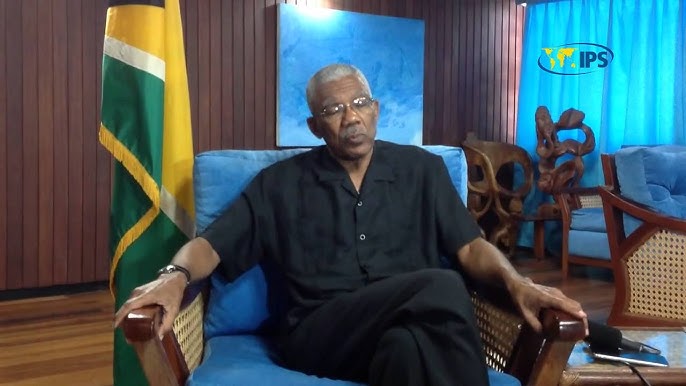On October 2023, former President of Guyana, David A. Granger, made a startling claim that his vehicle was struck by gunfire in what he characterized as an attempted assassination. This incident has raised significant concern and debate within the political landscape of Guyana, a nation still grappling with the repercussions of its turbulent political history.
David A. Granger, who served as president from 2015 until 2020, is a prominent figure in Guyana’s political sphere. His leadership was marked by a commitment to national development and governance reforms, but also by political polarization. Granger is the leader of the People’s National Congress Reform (PNCR), a major party in the coalition government that ousted the previous administration. His tenure was characterized by efforts to bolster economic growth, particularly in light of the recent oil discoveries off the coast of Guyana, but it was also marred by controversies and tensions with opposition parties.
The alleged assassination attempt occurred when Granger was reportedly traveling in his vehicle. He claimed that several shots were fired at his car, leading to damage that could have been catastrophic. Fortunately, he reported no injuries to himself or his companions. This incident has elicited a mix of fear and outrage, particularly among his supporters and the broader populace who may view this act as indicative of rising political violence in a country where tensions can quickly escalate.
Following the incident, Granger addressed the media, expressing his gratitude for surviving the attack and emphasizing the need for enhanced security measures for public figures in Guyana. He described the act as not just an attack on him personally but as an affront to democracy and the rule of law. Granger’s statements resonated with many who are concerned about political violence in the region, where assassinations and violent clashes have historically occurred, particularly during election cycles.
The response from the government, which is now led by the People’s Progressive Party (PPP), was swift. They condemned the attack and called for a thorough investigation into the shooting. Prime Minister Mark Phillips and other government officials expressed their shock and reiterated their commitment to ensuring the safety of all citizens, regardless of political affiliation. However, some observers noted that political tensions between the PPP and the PNCR have often led to distrust, making it challenging for the opposition to accept reassurances from the current government.
The incident has sparked a wider discussion about the security of political figures in Guyana. The country has experienced a volatile political climate in recent years, particularly following the contentious 2020 elections, which saw allegations of electoral fraud and widespread protests. The aftermath of those elections has left deep scars in the political fabric of the nation, leading to a polarized society where political affiliations often dictate perceptions of safety and security.
Additionally, the gunfire incident raises questions about the effectiveness of law enforcement and security measures in the country. Critics of the current government argue that more needs to be done to address crime and ensure the safety of all citizens, particularly those in high-profile positions. There are also concerns about the potential for violence to escalate, especially in the lead-up to future elections. The political rhetoric from both sides often reflects a lack of trust, which can contribute to an environment where violence is perceived as a viable means of resolving disputes.
The international community has taken notice of this incident, with various organizations and foreign governments expressing concern about the state of democracy in Guyana. The Organization of American States (OAS) and the Caribbean Community (CARICOM) have both emphasized the importance of a peaceful political climate and urged all parties to engage in dialogue to mitigate tensions. Such incidents not only affect the immediate individuals involved but also have broader implications for the stability and democratic processes within the nation.
In the context of Granger’s claim, the investigation into the shooting will be closely scrutinized. How law enforcement agencies handle the situation may either alleviate or exacerbate fears of political violence. For Granger and his supporters, this incident may serve to galvanize support, framing him as a victim of an oppressive regime. On the other hand, the current administration may face pressure to demonstrate their commitment to law and order, particularly in light of the longstanding accusations of partisanship in policing.
This incident highlights the precarious balance of power in Guyana, where political affiliations deeply influence perceptions of safety, justice, and governance. As the nation looks towards the future, the focus will likely be on how both sides navigate this critical juncture. Continued violence or intimidation could lead to a further erosion of trust in democratic institutions, while constructive dialogue may pave the way for reconciliation and stability.
In conclusion, the claim made by David A. Granger regarding an attempted assassination underscores the fragile nature of political life in Guyana. As the investigation unfolds and responses from both the government and opposition parties emerge, the nation must grapple with the implications of political violence and its potential to disrupt the democratic process. The incident serves as a reminder of the urgent need for dialogue, security reform, and a collective commitment to uphold the principles of democracy, ensuring that political disagreements do not escalate into violence. The coming months will be critical as Guyana navigates these challenges, and the actions taken now may have lasting effects on the nation’s political landscape and societal cohesion.














